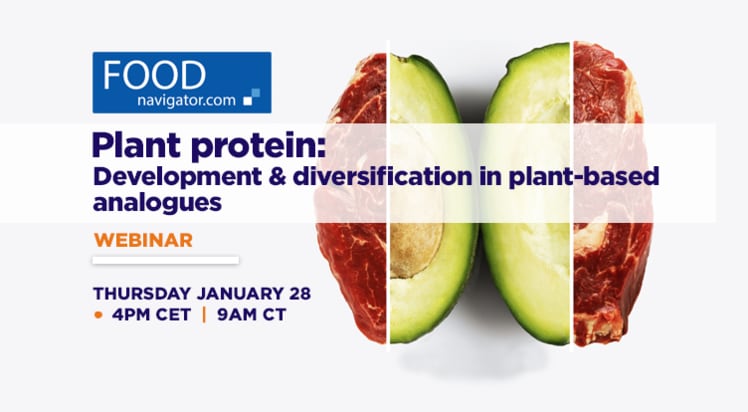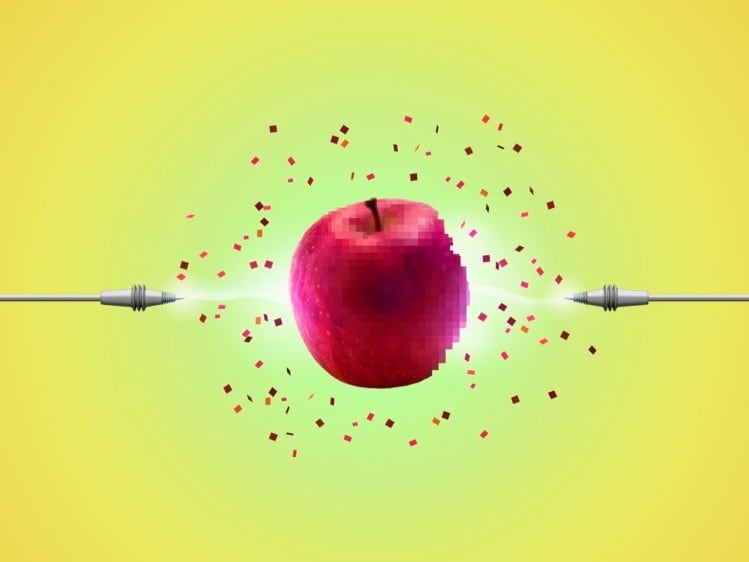The companies have partnered with the Future Food-Tech Summit to launch the Innovation Challenge, which will conclude in a pitch at the live-streamed virtual event on 11-12 March.
Speaking on a webinar ahead of the event, D'Anne Hayman, vice president of Global Innovation and Nutrition at Kellogg, explained the company is seeking pitches on unique plant-based ideas that support digestive wellness.
Gut health 'the future of nutrition'
Kellogg’s has spotted market opportunities for products that support digestive wellness, she explained. Amid COVID-19, consumers have been 'doubling down in the health and wellness space and nutritious products'. They have also been more drawn to traditional and trusted brands. Kellogg’s is therefore looking to promote its 'diverse range of plant-based fibres to nourish the gut’ and is focussing on the digestive wellness offerings in its portfolio. “We're trying to drive that message to consumers through a lot of our strong core brands and new ones,” she said.
Meanwhile, research is moving at a clip to give a better understanding of the gut's impact on our mental and physical wellbeing. New plant fibers, valorized fibers from waste streams, prebiotics, postbiotics, fermented ingredients and new non-spore food stable probiotics all have the potential to improve digestive wellness – and thus, our mental and physical wellbeing.
“Gut health is the future of nutrition,” declared Hayman. "The advancement of our knowledge in the microbiome space has just exploded and it really has changed the way that we look at how our body takes on nutrition and how that impacts our overall health."
“There's mounting evidence to support the fact that that the microbiome is directly or indirectly linked to nearly every system in the human body. We know it responds to everyday factors like what we eat, what we drink, how much stress we're under and how much sleep we've had. Subsequently, that has an impact on our energy levels, mood, anxiety, sleep quality and metabolism.”
Plant-fibres, she added, are a ‘major source of energy for the gut microbiome’ and ‘one of the most important ways to nourish the gut’. Concomitantly, the lack of take up of fibre among consumers is ‘quite alarming’, with misconceptions about fibre rife.
“We know that 90% of consumers in our developed markets are not meeting their daily fibre intake… Consumers are not aware that adequate fibre intake is consistently linked with reduced risk of chronic diseases. We know that people don't eat enough high fibre foods or may be challenged to locate identify and find them. Hence why we're initiating the innovation challenge - we are looking to continue to build our offering of foods to consumers with plant-based food offerings that are rich in fibre.”
The plant-based protein taste and texture challenge
Unilever, meanwhile, is looking for ingredients and processing technologies to improve taste, texture, sustainability and affordability of plant-based meat and dairy alternatives. This aligns with the company’s recently announced target to achieve €1 billion in annual sales of plant-based meat and dairy alternatives within the next five to seven years.
"We know there are huge challenges in the food system and moving towards a more plant-based diet is one key enabler of improving planetary and human health," said André Pots, Director Product and Process Science Foods & Refreshment at Unilever.
"We want to double our products that deliver what we call positive nutrition: that's either ones fortified with micronutrients, vitamins and minerals, or with increased levels of fibre or protein levels. Anything that is helping to achieve a more healthy diet and sustainable global food system and therefore a sustainable business.”
One area of focus is to explore different alternative protein solutions away from soy, pea or wheat.
"We need to extend and expand our portfolio of products that we are using, not only for resilience and availability, but also for functional properties. The next generation products that we're looking at, such as oat protein, lentil, faba beans, chick peas, potato, these things we're looking at for the functional properties in terms of binding, juiciness and bite. also to avoid the off notes often associated with pea or soy."
Unilever is also looking at better processing for plant-meats. "If you look at the meat industry, the scale is huge. Their lines are incredible in efficiency in output and efficiency. In terms of plant meat we are way behind that and we need to up our game an invest. We also still need better and more efficient processes to structure proteins. We need to be able to start from vegetable proteins or protein flowers and then in the right treatment create the fibes to get firmer and longer fibres. The most used solution is extrusion but there are also disadvantages for scaling fast and for fast and effective scaling we want to look beyond what is available.”
The need to improve taste, texture, sustainability and affordability also applies to dairy alternatives, and Unilever wants to explore different vegetable proteins that are without some of the defects sometimes are associated with them such as bean like off notes and structural defects such graininess or sandiness – a particular problem when formulating non-dairy ice cream.
"The solutions we would be looking for would be bland in terms of taste, structurally stabilising that would be comparable to diary solutions,” explained Pots.
He added there is ‘a big merit in working both with relatively small start-ups as well as the big, multinational ingredients suppliers’. “In both ways we can find unique solutions that benefit both of us. For start-ups, its important they are as specific and realistic as they can get. It's important to know what's the problem that it's solving. Then we can have a discussion and see if there's a business case."





